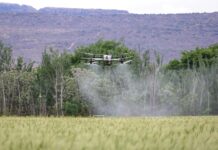BETHESDA, Md. – The Food and Drug Administration has determined that pigs involved in certain bioengineering studies at the University of Illinois at Urbana/Champaign were possibly not properly disposed of and may have entered the food supply.
The agency thinks that, based on present information, this incident poses no public health risk.
Nevertheless, if confirmed, it would represent a significant breach of the administration requirements for this study – warranting strong action against the responsible parties.
Isolated. To date, this appears to be an isolated incident in which measures already in place to dispose of experimental transgenic animals may not have been followed.
Recent Food and Drug Administration inspections of research facilities at the University of Illinois at Urbana/Champaign indicate that between April 2001 and January 2003 university researchers released 386 pigs from these studies to a livestock dealer.
The researchers claim that these pigs, which were the offspring of transgenic animals, did not inherit the inserted genetic material from their parents – that is, they were not themselves transgenic.
No verification. Nevertheless, the administration cannot verify this assertion because the researchers did not conduct sufficient evaluation or keep sufficient records to assess whether the offspring inherited the inserted genetic material.
Because these were experimental animals, the administration had not yet determined the safety or efficacy of the genetic material they contained, however all available scientific evidence indicates that they would present no risk to public health.
Lactation. The genes were engineered so that the proteins would be produced primarily, if not exclusively, in the mammary glands of lactating sows.
None of the pigs sent to slaughter are thought to have been old enough to lactate.
Therefore, Food and Drug Administration does not believe that any product derived from these animals would have to be removed from commerce for public health reasons, and USDA concurs.
More investigation. In collaboration with USDA, the Food and Drug Administration is continuing to examine carefully the records and practices of the individual researchers and the university.
Under the terms of the study protocols, animals involved in this particular study were to have been destroyed by incineration or rendering to prevent their introduction into the human food supply.
Observations. Based on its current findings, the administration has issued both the University of Illinois and the individual investigators involved in this case a notice of its observations from inspection.
The administration will take further action based on the results of the investigation.









